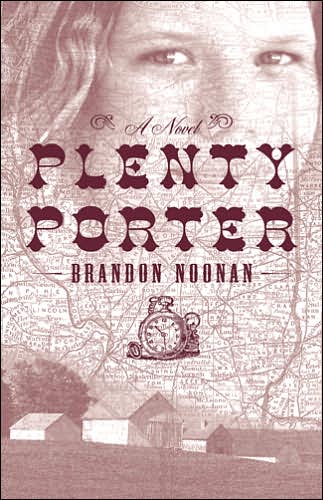Eleven kids is plenty, is what Plenty Porter is told. The youngest of a very poor family who are farming land for a wealthy man, Plenty has a mild suspicion that she wasn't really needed -- or wanted, in her family. Her mother and father are too busy with her other siblings to pay much
 attention to her, but Plenty doesn't seem to worry about that, or about the fact that she is mostly a strange kind of outsider -- befriending the Coloreds and attending a private school for children of privilege. There is a distance in the voice that makes Plenty seem a little separate from her own emotions, and it makes it difficult for readers to hone in on exactly who they're meant to cheer for as a character.
attention to her, but Plenty doesn't seem to worry about that, or about the fact that she is mostly a strange kind of outsider -- befriending the Coloreds and attending a private school for children of privilege. There is a distance in the voice that makes Plenty seem a little separate from her own emotions, and it makes it difficult for readers to hone in on exactly who they're meant to cheer for as a character.Also, there are plenty of issues that are more complicated than the home-spun narrative leads us to believe. Things -- lots of things -- are not quite what they seem in this 1950's Illinois town, and Plenty spends a lot of time watching and wondering. When her sister starts going bald, Plenty sees. Though Plenty doesn't seem to have much a story -- it's all about Marcie, really -- it is her voice and eyes which give the setting and pace of the book. I found the ending completely unexpected, surreal and somewhat jarring; somehow the simplistic tone of the narrator did not adequately convey reality in terms of the fact that a murder was committed and an ugliness uncovered in the dreamily simple little town. The details after the murder seem to be unimportant; the guilt of the murdered is a foregone conclusion, and the across-the-tracks set meted out justice in the way they saw fit, the end.
This was an interesting story, though the end was somewhat too fast and left details unexplored. I thought the cover was nicely done; its opaqueness and layered pictures hinted at the cloudy depths of the storyline and the mysteries therein.

No comments:
Post a Comment